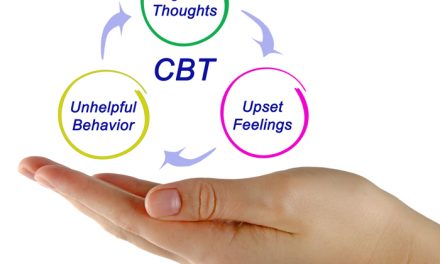Not too many songs are built around a single musical note. Even the famous song “One Note Samba” involves a lot more than a single note. A song is a complex combination of melody, harmony, rhythm, dynamics, and more.
The same is true about a person. No single trait can fully define an individual. So when it comes to helping an individual overcome a problem—like a substance use disorder—it simply will not do to focus on just one thing about them.
What you want is a holistic approach to treatment.
At The Aviary Recovery Center, that is exactly what we offer. Our holistic treatment program addresses a person’s physical health and their mental and emotional well-being while helping to nurture a healthy approach to spirituality and the building of a strong support network.
Let’s delve into six areas that are important to a holistic treatment plan.
Substance Use Disorder Treatment
This, we admit, is pretty obvious. If you are struggling with drugs or alcohol, you need to get free of the substances so that you can move forward with your life in a positive way. The ways in which we directly address a substance use disorder include medically supervised detoxification, which provides a safe place that is free of temptations for a person to weather the challenges of withdrawal with ongoing support. Detoxification is followed by a robust rehabilitation program that provides strategies and resources for supporting your ongoing recovery.
Rehabilitation is also the portion of the treatment process during which other areas of a holistic approach come most clearly into focus.
Nutritional Balance
Good nutrition is essential to your ongoing recovery for a couple of reasons. First, drug or alcohol use can really do a number on your physical health over time (more on that below), and eating healthily can help with the healing your body needs to do.
Secondly, making healthy dietary choices supports your recovery directly by, for example, minimizing risks associated with sugar, supporting healthy sleep, and bolstering your mental health.
We are big proponents of healthy eating. You can start reading our series of blog posts on the topic here.
Emotional Health
Many people believe that they make most of their decisions based solely on reasoning and clear thinking. But the fact of the matter is that our emotions have a major impact on every aspect of our lives. Emotional issues can even be a driving factor in the development of a substance use disorder if a person turns to drugs or alcohol to “self-medicate” against difficult emotions.
Through group and individual therapy sessions during rehabilitation, you can learn more about your emotions and how they are related to your thoughts and actions. That knowledge can help you maintain your recovery even in the face of strong emotions.
Physical Wellness
We talked about healthy eating above, and that is certainly an important aspect of physical wellness. Restful sleep is also key to physical health (and mental health, too).
But here we want to focus on the importance of getting regular exercise. We are not proposing that you have to become a gym rat or run a marathon or what have you. However, we are suggesting that regular exercise helps you keep your recovery going. Even adding a daily walk to your routine can get you going in the right direction when it comes to physical wellness.
Spirituality
This can be a tricky topic, so we want to be clear that we are not necessarily talking about religion. Instead, we mean spirituality in the sense that you recognize that you are part of something bigger than yourself.
That might sound a little woo-woo to you, but the truth is we are all part of something that extends beyond ourselves. For example, your community of friends and family is bigger than just you. The causes you support are bigger than you. And, yes, your faith community can offer you a way to think about a bigger picture, too. When you keep that in mind, you are supporting your recovery.
Psychiatric Health
Your mental health is intertwined with your recovery. Or to put it the other way around, substance use disorders and mental health disorders are often tangled up together.
That is why our rehabilitation program includes identifying and treating mental health disorders like depression, anxiety, or issues grounded in traumatic experiences. Working to maintain good mental health after your time in residential treatment comes to an end is ongoingly important to your recovery.
Our Holistic Approach Can Help You Change Your Life
At The Aviary Recovery Center—located near St. Louis, Missouri—we are proud of our holistic approach because it leads to positive outcomes for the individuals we serve. This approach also ensures that we see—and treat—each person as the unique individual they are. Our expertise, experience, evidence-based practices, and spirit of empathy guide our work each and every day.
When you are ready to make the changes that will improve your life, we are ready and eager to get to work.










